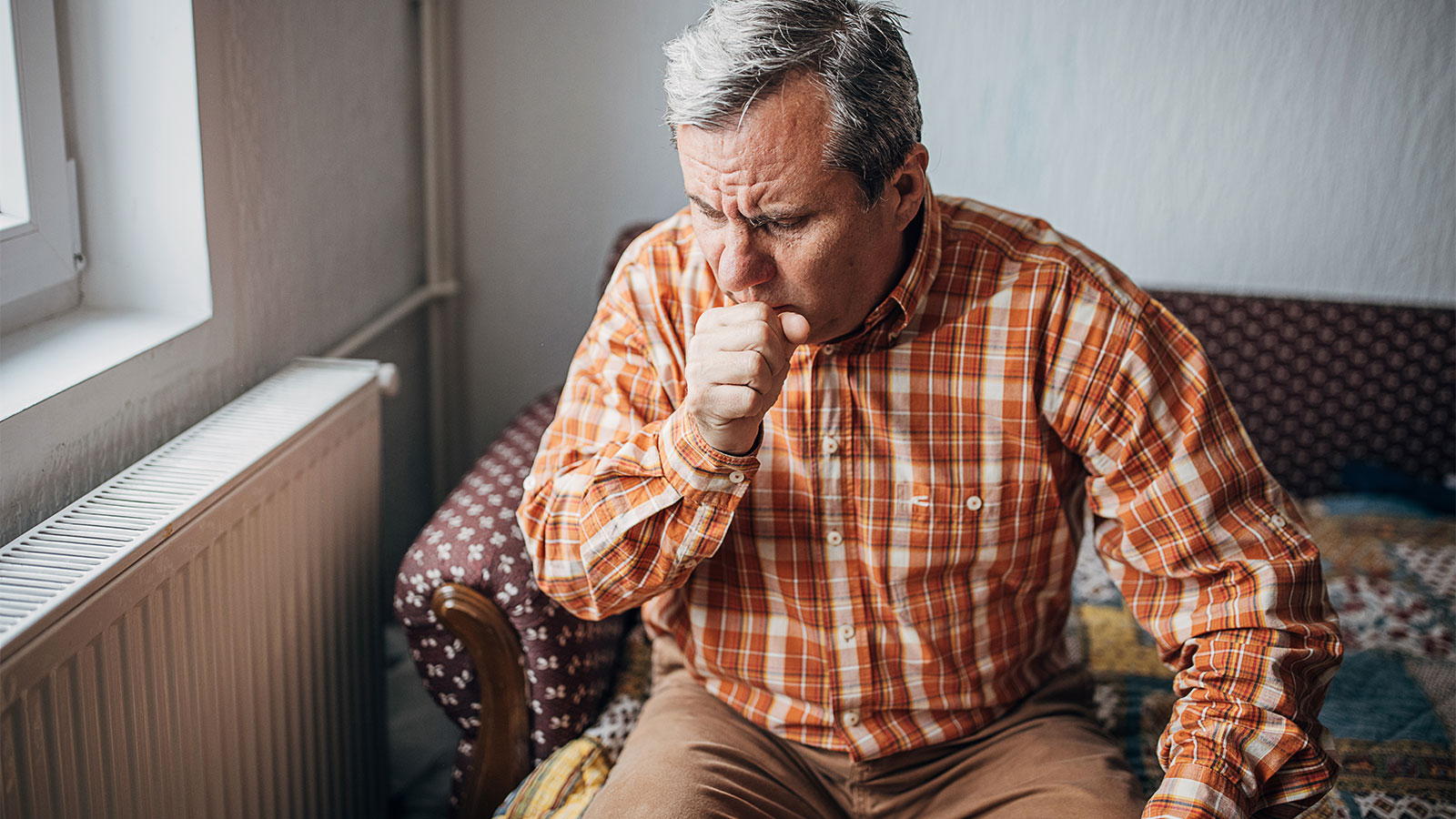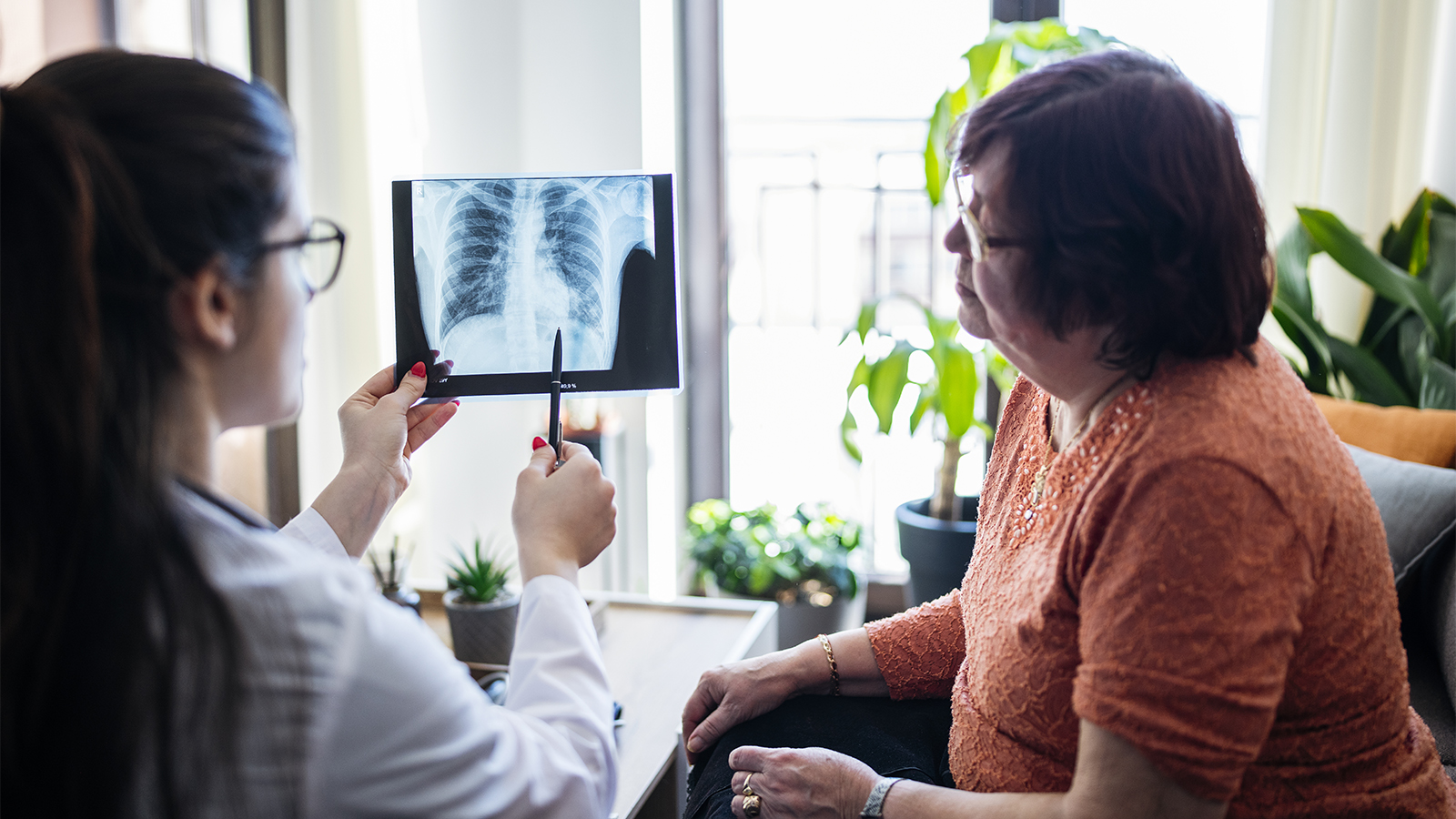Signs of Lung Disease: What Shortness of Breath Could Mean
If you have trouble breathing, shortness of breath, or a long-lasting cough, you could have a respiratory disorder that needs medical attention. Learn the key signs and prevention tips.

By Andrew Schiff, MD, Virtua Pulmonology
What’s something you do 25,000 times every day without even thinking about it?
It’s breathing, and it’s essential to life, delivering oxygen from our lungs to our bloodstream. But, if you have trouble breathing or shortness of breath for no apparent reason, a cough for more than a month, or chest pain that gets worse when you breathe in or cough, you could have a respiratory disorder that should be checked by a doctor.
What are some conditions that may cause shortness of breath?
Allergies
Allergies are the immune system’s response to a substance it believes is harmful, such as grass, dust, or pet dander, but really isn’t. Allergies can inflame your airways, sinuses and nasal passages. Reactions to airborne allergens can include sneezing, itchy, watery eyes, inflammation of your airways and increased mucus (phlegm) production. While most allergies can’t be cured, medication often can relieve symptoms.
Asthma
Asthma causes excess mucus, and spasms of the airways. It can develop at any age, and can be triggered by allergens, temperature changes, exercise, or stress. Common signs of asthma include trouble breathing with exertion, wheezing or whistling when exhaling, a persistent cough, and chest tightness.
Chronic obstructive pulmonary disease (COPD)
COPD, which includes chronic bronchitis and emphysema, gradually makes breathing more difficult. It's often mistaken for a normal sign of aging. People who smoke have a higher risk of COPD. Symptoms include frequent coughing or wheezing, increased mucus production, and shortness of breath. Inhalers are used to prevent and treat flare-ups.
Lung cancer
Lung cancer is one of the most common types of cancer in the United States. Symptoms of lung cancer may not appear until the disease is in its later stages. When symptoms are present, they may include a cough lasting more than two months, chest pain, chronic chest infections, night sweats, and unexplained weight loss.
One often overlooked sign of lung cancer is back pain. While it can be difficult to differentiate from a muscle strain, this type of back pain develops gradually, and you can’t pinpoint a cause.
Most people who develop lung cancer are, or were, smokers. If you meet the criteria, you may be eligible to have a lung cancer screening. This painless, low-dose CT scan is the only way to detect lung tumors or nodules at an early and more treatable stage. So if you think you are at risk for lung cancer, talk to you doctor about the screening.
To prevent respiratory disease, I recommend the following:
- Don’t smoke or vape.
- Avoid second-hand smoke and breathing in particulate matter or other air pollution.
- Do cardio exercises that keep your heart rate up and your lungs open.
If you have lung symptoms that aren't improving, see a pulmonologist.
If you have a cough that won’t go away or have difficulty breathing, it could be a sign of a respiratory disease. Find a Virtua pulmonology location, or call 888-847-8823.










